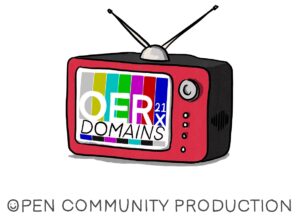This blog post was written by Greg Walters, who is the Marketing and Communications Officer for the recently formed, ALT Special Interest group on Copyright and Online Learning. Greg writes…..
The pandemic has highlighted a need for discussions around a key area that has been debated in the open education community for many years: namely the relationship between open practices and copyright. The requirement for academics to have a greater understanding of copyright has been highlighted in previous studies but often focuses on issues related to open access publishing and scholarly communication (Hoorn, E and van der Graaf, M. 2005). In this conference session we will specifically explore the role that copyright literacy plays in this debate. Copyright Literacy means “acquiring and demonstrating the appropriate knowledge, skills and behaviours to enable the ethical creation and use of copyright material” (Secker and Morrison, 2016, p.211).
Members of the newly formed ALT Special Interest Group on Copyright and Online Learning will be facilitating this 30 minute open space session (ID 16), scheduled for 5:30pm (UK time) on the 21st of April. Prior to the open session commencing delegates are encouraged to engage with a Padlet, containing links to resources which will enable them to converse with facilitators around the following questions:
- Is copyright law a barrier or enabler of open practice?
- How inclusive is copyright as a discipline and what can be done to make it more ‘open’?
- Is copyright literacy a barrier or enabler of open practice?
- Does discussion of open practice focus enough, or too much on copyright and licensing practices as opposed to other aspects of openness?
The 30-minute open space session will commence with an introduction from Chris Morrison and Jane Secker providing an overview of the topic. Delegates will then be able to attend two breakout rooms to discuss questions that interest them. Having previously engaged with the Padlet, delegates will be able to discuss their comments or interact with the breakroom facilitators synchronously/ asynchronously to explore the questions in more detail. After the breakout rooms have concluded, the facilitators will provide a brief summary of what was discussed, which will be followed by a Question-and-Answer session from the floor. The output from the session will be an openly published position paper, which will be informed by the responses from the breakout rooms.
We look forward to meeting you at our session on April 21st and discussing this important area with you further. On behalf of the Copyright and Online Learning Special Interest Group, this is: Sarah Barkla, Lorna M Campbell, Chris Morrison, Jane Secker, and Greg Walters wishing you well.
If you’re interest in joining our Copyright and Online Learning Special Interest Group (CoOL SIG), please visit our webpage. You can also follow us on Twitter @ALTCoOLSIG.
References
Secker, J and Morrison, C (2016) Copyright and E-learning: a guide for practitioners. Facet Publishing: London.
Hoorn, E and van der Graaf, M. (2005) Towards good practices of copyright in Open Access journals: A study among authors of articles in Open Access journals. Jisc / SURF. Available at: http://www.jisc.ac.uk/uploaded_documents/Towards%20Good%20Practices%20of%20Copyright%20in%20Open%20Access%20Journals%20-%20version%201.0new.pdf

